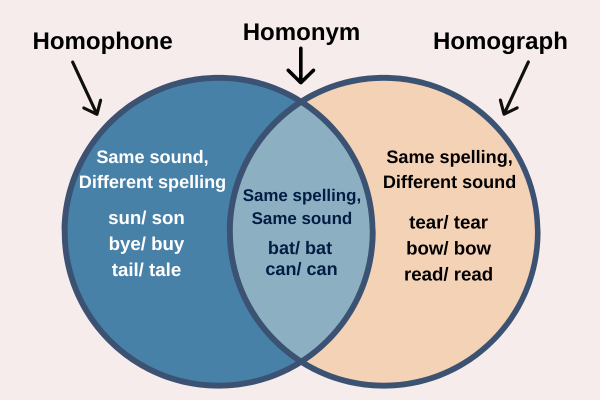French, like many languages, presents unique challenges for learners. One such hurdle lies in mastering homophones – words that sound identical but have different meanings. This can be particularly tricky for non-native speakers, as subtle nuances in pronunciation can easily be overlooked. Overcoming the challenge of homophones is essential for achieving fluency in French. It requires keen listening skills, a solid grasp of pronunciation, and a deep understanding of the language’s nuances.
Key Takeaways
- French homophones sound the same but have different meanings, so understanding them helps you avoid confusion and communicate more clearly in everyday situations.
- Common homophones like sens, sans, verre, ver, fois, and foi show how small spelling changes can completely shift meaning.
- Learning French homophones builds confidence in reading and speaking, making your overall language understanding smoother and more accurate over time.
What Are French Homophones?
Homophones are words that sound the same but have different meanings. In French, they can pose a significant challenge for learners, as subtle pronunciation differences can easily be missed.
One of the most common examples is “sang” (blood) and “son” (sound).
Common French Homophones and Their Meanings
- Sens / Sans
Sens: Masculine noun meaning “sense” or “meaning,” or the first or second person singular present tense of “sentir” (to feel/smell)
Example: Quel est le sens de ce mot ? (What is the meaning of this word?)
Sans: Preposition meaning “without”
Example: Je bois mon café sans sucre. (I drink my coffee without sugar.)
- Ver / Verre
Ver: Masculine noun meaning “worm”
Example: Il y a un ver dans la pomme. (There is a worm in the apple.)
Verre: Masculine noun meaning “glass”
Example: Je bois de l’eau dans un verre. (I drink water in a glass.)
- Mère / Maire
Mère: Feminine noun meaning “mother”
Example: Ma mère est très gentille. (My mother is very kind.)
Maire: Masculine or feminine noun meaning “mayor”
Example: Le maire de la ville a fait un discours. (The mayor of the town gave a speech.)
- Pain / Pin
Pain: Masculine noun meaning “bread”
Example: J’achète une baguette de pain. (I buy a loaf of bread.)
Pin: Masculine noun meaning “pine tree”
Example: La forêt est pleine de pins. (The forest is full of pine trees.)
- Cours / Court
Cours: Masculine noun meaning “course”
Example: Je suis un cours de français. (I am taking a French course.)
Court: Adjective meaning “short” or masculine noun meaning “court”
Example: Ce pantalon est trop court. (These pants are too short.)
- Dans / Dent
Dans: Preposition meaning “in”
Example: Le livre est dans le sac. (The book is in the bag.)
Dent: Feminine noun meaning “tooth”
Example: J’ai mal à une dent. (I have a toothache.)
- Moi / Mois
Moi: Stressed pronoun meaning “me”
Example: C’est pour moi. (It’s for me.)
Mois: Masculine noun meaning “month”
Example: Le mois de décembre est froid. (The month of December is cold.)
- Chair / Chaire
Chair: Feminine noun meaning “flesh” or “skin”
Example: La chair du fruit est juteuse. (The flesh of the fruit is juicy.)
Chaire: Feminine noun meaning “pulpit”
Example: L’orateur a parlé depuis la chaire. (The speaker spoke from the pulpit.)
- Fois / Foi
Fois: Feminine noun meaning “time” (as in occurrence)
Example: Une fois, j’ai visité Paris. (One time, I visited Paris.)
Foi: Feminine noun meaning “faith”
Example: Elle a une grande foi. (She has great faith.)
- Voie / Voix
Voie: Feminine noun meaning “way,” “path,” or “lane”
Example: Cette voie est bloquée. (This lane is blocked.)
Voix: Feminine noun meaning “voice”
Example: Elle a une belle voix. (She has a beautiful voice.)
- Sot / Sceau
Sot: Adjective meaning “foolish
Example: C’est une idée sotte. (It’s a foolish idea.)
Sceau: Masculine noun meaning “seal”
Example: Le roi a apposé son sceau. (The king affixed his seal.)
- Quand / Quant
Quand: Adverb or conjunction meaning “when”
Example: Quand viendras-tu ? (When will you come?)
Quant: Prepositional phrase meaning “as for”
Example: Quant à moi, je suis fatigué. (As for me, I am tired.)
- Vert / Vair
Vert: Adjective meaning “green”
Example: Le jardin est tout vert au printemps. (The garden is all green in the spring.)
Vair: Masculine noun meaning “squirrel fur” (historical/literary)
Example: La pantoufle de vair (Cinderella’s glass slipper)
- Sang / Cent
Sang: Masculine noun meaning “blood”
Example: Le sang coule. (The blood flows.)
Cent: Number meaning “one hundred”
Example: Il y a cent personnes. (There are one hundred people.)
- Haltère / Altère
Haltère: Masculine noun meaning “dumbbell”
Example: Je soulève des haltères. (I lift dumbbells.)
Altère: Third person singular present tense of “altérer” (to alter/spoil)
Example: Le temps altère la pierre. (Time alters the stone.)
- Champ / Chant
Champ: Masculine noun meaning “field”
Example: Nous marchons dans le champ. (We are walking in the field.)
Chant: Masculine noun meaning “song” or “singing”
Example: Le chant des oiseaux est beau. (The singing of the birds is beautiful.)
- Tasse / Tas
Tasse: Feminine noun meaning “cup” or “mug”
Example: Je bois mon café dans une tasse. (I drink my coffee in a cup.)
Tas: Masculine noun meaning “pile” or “heap”
Example: Il y a un tas de livres sur la table. (There is a pile of books on the table.)
- Coup / Cou
Coup: Masculine noun meaning “hit,” “blow,” “stroke,” or “act”
Example: Il a donné un coup de pied dans le ballon. (He kicked the ball.)
Cou: Masculine noun meaning “neck”
Example: J’ai mal au cou. (My neck hurts.)
- Pain / Peint
Pain: Masculine noun meaning “bread”
Example: J’achète une baguette de pain. (I buy a loaf of bread.)
Peint: Past participle of “peindre” (to paint), meaning “painted”
Example: Le mur est peint en bleu. (The wall is painted blue.)
- Faim / Fin
Faim: Feminine noun meaning “hunger”
Example: J’ai faim. (I am hungry.)
Fin: Feminine noun meaning “end,” or adjective meaning “fine,” “thin,” or “clever”
Example: C’est la fin du film. (It’s the end of the movie.)
Difference Between Homophones and Homonyms
Imagine you have two buddies: Homophones and Homonyms. They’re a bit like twins, but with different personalities.

Homophones are words that sound the same but might have different meanings and spellings. It’s like “flower” and “flour” – they sound alike but mean totally different things.
Now, meet Homonyms. They’re the true twins, sharing the same name and often the same spelling, but they might have different meanings. Think of “bat” – it could be something you play baseball with or a creature that flies around at night.
So, Homophones sound alike, Homonyms look alike. It’s a wordy family reunion, and you’re the guest of honour!
Frequently Asked Questions
Why does French have so many homonyms?
French’s historical development and phonetic changes have led to many homophones. The loss of certain sounds and the evolution of pronunciation over time have resulted in words with different meanings sounding the same.
Why don’t French pronounce ‘S’?
While this is a generalization, French does pronounce the letter “s” in many cases. However, there are specific rules that determine when “s” is silent. Often, “s” is silent at the end of words or when followed by another consonant!





